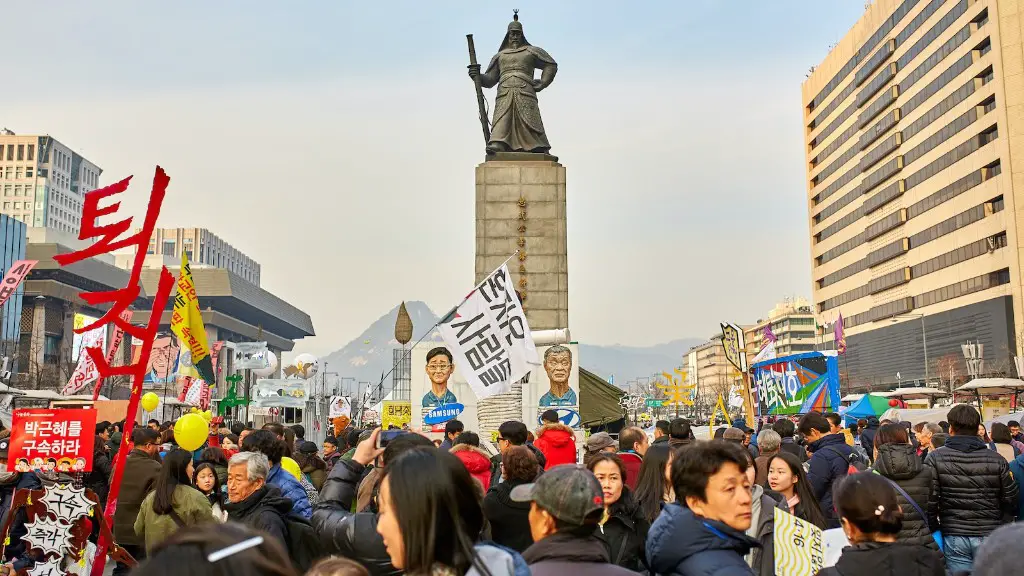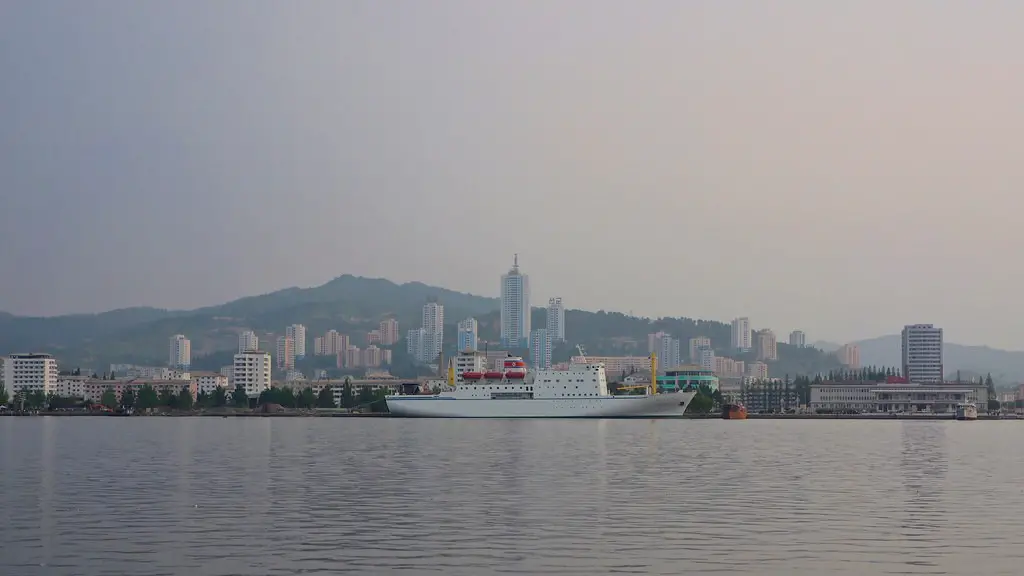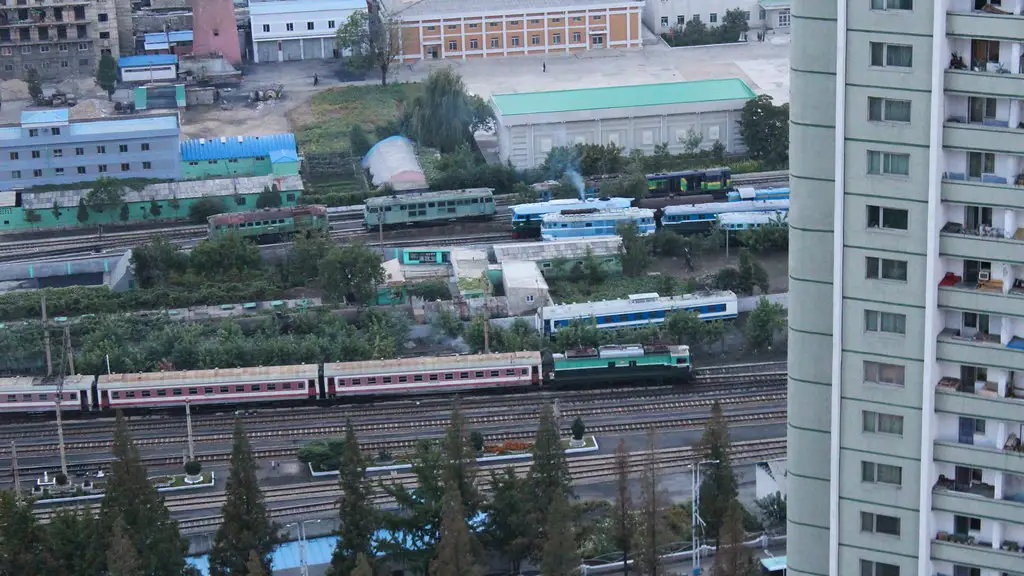Background
North Korea is a unique country, ruled by an authoritarian communist regime for more than 70 years. Since Kim Jong Un took power in 2011, the country has become increasingly isolated, with the United Nations (UN) imposing a range of sanctions in response to North Korean activities that violate international law. UN member states have imposed a series of measures in an effort to pressure North Korea to reconsider its nuclear and ballistic missile programme, as well as other destabilizing activities.
The United Nations Security Council (UNSC) first imposed sanctions on North Korea in 2006, when the country conducted a nuclear test. These measures included a ban on the import of arms and related material, ban on the export of Scud missiles and the import of luxury goods, and the establishment of a UN committee to monitor North Korean compliance with the sanctions.
Since then, the sanctions have evolved and become more stringent. There has been an increase in international pressure to discourage North Korea from testing nuclear weapons, and the UNSC continues to pass tougher measures in response to further provocative actions from the country.
Relevance of Sanctions
Sanctions are seen as a way to pressurize Kim Jong Un and other North Korean leaders to change their behaviour, while avoiding military action. The US and its allies are also utilizing sanctions as a way to disrupt the North Korean economy and reduce the regime’s ability to finance its missile and nuclear weapons programmes.
The international community has been alarmed by the acceleration of North Korea’s nuclear and ballistic missile capabilities and the danger these pose to regional and global security. The UNSC has imposed a series of economic sanctions to try to pressure the country into abandoning its weapons programmesand re-engaging diplomatically with the international community.
Types of Sanctions
The UN sanctions imposed on North Korea include, but are not limited to, an arms embargo, freeze on certain financial transactions, sanction on certain luxury items, oil embargo, and a ban on ships entering North Korean waters.
In addition, US and European sanctions target the North Korean financial sector, aimed at impeding its access to foreign exchange and cutting off funding for the weapons programme. These include restrictions on the North Korean financial institutions, such as blacklisting the North Korean Foreign Trade Bank, which is the major source of foreign currency; blocking North Korean citizens or entities from accessing banking services abroad; and banning banks from trading with North Korea or processing its transactions.
Additionally, the US has imposed secondary sanctions targeting foreign companies and individuals engaging in financial transaction with North Korea, as well as companies doing business with the country.
Effectiveness of Sanctions
The effectiveness of the UN sanctions imposed on North Korea has been a matter of debate in recent years. Critics argue that the sanctions imposed so far by the international community have failed to stop Pyongyang from developing its nuclear and missile programs.
The UN’s own Panel of Experts reported that North Korea continued to make significant progress toward the advancement of its weapons programmes, and was able to access funds and materials to do so despite the sanctions.
Meanwhile, other observers point to the economic hardship the country has faced from the sanctions as evidence of their effectiveness. It is estimated that the economic recession caused by the sanctions has led to a decrease in the North Korean GDP by 20-30 percent in the last 20 years.
Perspectives From Experts
Experts have differing views on the role that sanctions have played in North Korea’s foreign relations and their potential efficacy in the future. Many insist that the only effective way to induce Pyongyang to change its behaviour is to impose further sanctions.
However, others hold that further sanctions could be counter-productive, as North Korea is already significantly isolated internationally. According to this theory, the focus should shift to negotiation, as sanctions do not appear to be leading to the desired outcomes.
Insight and Analysis
Sanctions may have had negative effects on the North Korean economy and population, but it is hard to determine if these sanctions are ultimately achieving their aims of convincing Kim Jong Un to scale back his nuclear and ballistic missile programmes. It appears that the sanctions, to date, have not accomplished these goals.
Without a comprehensive diplomatic strategy involving negotiations, further sanctions are unlikely to be effective in deterring North Korea from its nuclear ambitions. At the same time, it is unclear whether the regime will use negotiations as an opportunity to secure economic relief or simply to prolong its weapons creation.
International Engagement
The sanctions imposed on North Korea to date have been mostly politically-driven, with different countries imposing sanctions for their own motives. To date, there has been limited international dialogue or coordination on the issue , leading to a patchwork of sanctions that may have limited impact.
The UN, US and other countries should work together to increase the efficacy of the sanctions and push towards a comprehensive diplomatic strategy involving both sanctions and negotiations. International engagement, involving China, South Korea and others, should also be increased in order to increase the pressure on the regime to change its behaviour.
Possibility of Reversal
Given the effects of the sanctions on the North Korean population, it is possible that the sanctions could be reversed in the future, either through improved diplomatic relations or through unilateral action from North Korea.
The introduction of a new UNSC resolution demanding the reversal of all sanctions on North Korea could be one way of doing this, although it is highly unlikely that the current regime, or any regime for that matter, would take this course of action.
What Does the Future Hold?
It is difficult to predict what the future holds for North Korea and its sanctions. While the sanctions have had an undeniable effect on the North Korean economy, they have not yet induced the regime to alter its behaviour, and the international community is left with few options.
Whether through further sanctions or through a diplomatic process of negotiations, it seems unlikely that the international community will be able to induce the North Korean regime to change its behaviour until it reaches a tipping point, where the costs of continuing its nuclear and ballistic missile programmes outweigh the benefits.
Economic Impact
The UN sanctions have had an effect on the North Korean economy, in particular, with an estimated 7.5 million people—about a third of the population—suffering from food insecurity. UN sanctions also led to a 40% drop in exports, and a consequent decline in economic activity.
However, these effects have been largely due to North Korea’s poor economic policy and the overall inefficiencies and mismanagement of the economy. The sanctions have certainly added to the country’s economic difficulties, in particular the cuts to the country’s access to the global financial system.
Domestic Support for Sanctions
It is hard to gauge the public opinion on sanctions in North Korea, as the government strictly controls the media and public debate on such topics. However, anecdotal evidence suggests that not all North Koreans oppose the sanctions. Some have argued that the gradual decline of the economy has brought about much needed economic reform within the country.
Also, it is believed that the public would support any move towards political reform. If the sanctions are seen to be part of a process that eventually leads to a peaceful resolution of the current international situation, then it is likely that North Koreans would begin to see the sanctions as a necessary step towards peace.
Political Implications
The political implications of the sanctions are hard to predict. It is unlikely that sanctions alone will be able to bring about the desired changes in North Korea, and the US, its allies and the international community will have to make the difficult decision to either increase the sanctions or to use the threat of military action.
It is also possible that North Korea could remain isolated, with no meaningful diplomatic engagement with its neighbours. In this situation, it is likely that the North Korean government will continue to view the sanctions as a threat to its survival, and as an excuse to double down on its repressive control of the population.
Gaps in Sanctions Regime
Though the UN sanctions imposed on North Korea are extensive, there are still gaps in the regime, with some aspects not covered in the current sanctions. For example, there is no restrictions on the activities of North Korean bankers abroad, allowing them to continue their financial operations.
This limits the ability of the international community to pressure North Korea to stop its nuclear programme and other destabilizing activities, as there are still ways for the regime to acquire funds and materials. The UN, US and its allies should focus on closing these loopholes in order to tighten the sanctions regime.



